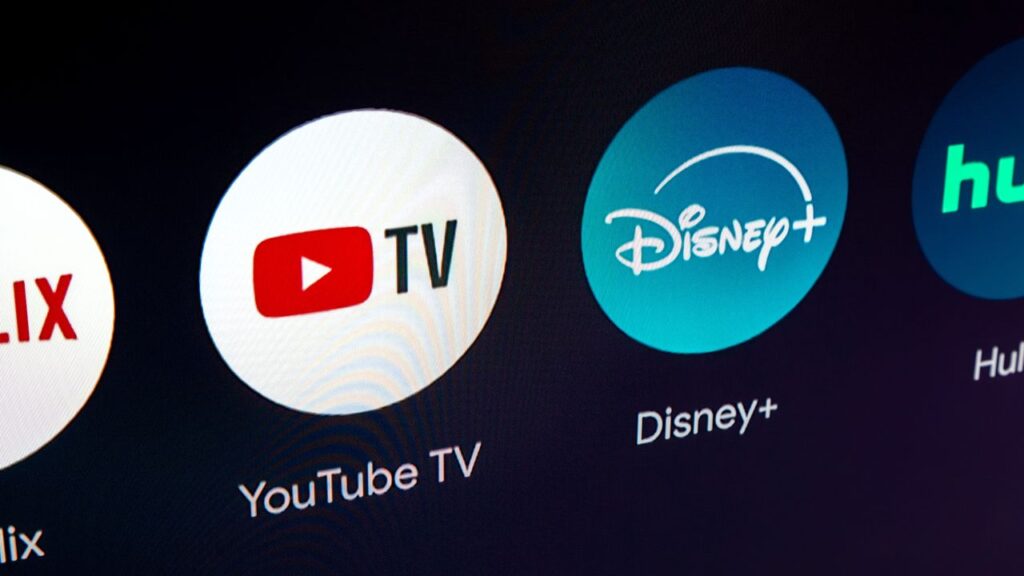The Mouse vs. the Tube: YouTube TV Subscribers Left in the Lurch as Disney Standoff Continues
Imagine settling in for a crucial game, only to be greeted by a blank screen. Or missing pivotal election coverage as the results roll in. For many YouTube TV subscribers, this isn’t a hypothetical scenario; it’s the frustrating reality of the ongoing dispute between Google and Disney. The content giants are locked in a high-stakes negotiation battle, leaving countless subscribers without access to key sports events and important news programming.
The core issue? Money, of course. Disney, owner of channels like ESPN, ABC, FX, and National Geographic, is seeking higher fees from YouTube TV for the right to carry its content. Google, the parent company of YouTube TV, argues that Disney’s demands are unreasonable and would ultimately lead to increased subscription costs for viewers. The result is a messy standoff where paying customers are caught in the crossfire, their viewing experience severely disrupted.
Why This Dispute Hurts: More Than Just Missing Mickey Mouse
The Impact on Sports Fans
The loss of ESPN is a significant blow, particularly for sports enthusiasts. ESPN’s portfolio includes major leagues like the NBA, MLB, NFL, and NHL, as well as college sports. Imagine missing a playoff game, a championship series, or critical regular-season matchups. For many sports fans, ESPN is the go-to source for live games, in-depth analysis, and all the highlights. Its absence creates a massive void in their entertainment options.
Furthermore, the dispute also affects channels like ESPN2, ESPNU, and the ACC Network, further limiting sports coverage. College sports fans, in particular, are heavily impacted, potentially missing out on crucial games and events throughout the academic year. The loss of these channels deprives them of the chance to cheer on their favorite teams and athletes.
Election Coverage Blackout: A Critical Loss of Information
Beyond sports, the absence of ABC is a significant concern, especially with important elections on the horizon. ABC News provides vital coverage of political events, debates, and election results. For many viewers, ABC News is a trusted source of information, and its absence leaves them without access to crucial updates during critical moments.
Losing access to network news during election cycles is arguably more damaging than missing sports. A well-informed citizenry is essential for a healthy democracy, and limiting access to news and analysis can have serious consequences. Viewers relying on YouTube TV for their news may have to seek out alternative sources, potentially encountering biased or unreliable information.
The Financial Sting: Paying for Less
Subscribers are understandably frustrated at paying for a service that is now missing key channels. They signed up for YouTube TV expecting a certain level of content, and the removal of Disney-owned channels represents a significant decrease in value. While YouTube TV has offered a small discount during the dispute, many subscribers feel it doesn’t adequately compensate for the loss of programming.
Many are looking at alternative streaming services like Hulu + Live TV, Sling TV, and FuboTV, which carry the Disney channels. Switching providers, however, can be a hassle, requiring new contracts and familiarizing oneself with a different interface. The frustration is compounded by the fact that subscribers are essentially being forced to choose between convenience and access to their favorite content.
The Blame Game: Who’s Really at Fault?
Disney’s Perspective: Fair Value for Content
Disney argues that it’s simply seeking fair compensation for its valuable content. They believe their channels are essential for any streaming service looking to attract and retain subscribers. As the media landscape evolves, Disney is determined to protect the value of its intellectual property and ensure its long-term financial viability. It has a responsibility to its shareholders to maximize its revenue streams.
Disney’s strategy is clear: drive value through high-quality content, then charge a premium for access. They may be willing to lose some subscribers in the short term if it means securing a better financial deal in the long run. They may be banking on the fact that many customers will eventually come crawling back to YouTube TV if Disney content remains unavailable.
Google’s Perspective: Keeping Costs Down
Google, on the other hand, is trying to keep subscription costs down for consumers. They argue that Disney’s demands are excessive and would ultimately force them to raise prices, potentially losing subscribers to cheaper alternatives. Google is likely facing pressure from its own shareholders to maintain profitability and market share in the increasingly competitive streaming market.
YouTube TV has positioned itself as a relatively affordable option compared to traditional cable TV. Raising prices significantly could undermine its competitive advantage. Google’s strategy seems to be a calculated risk: to weather the storm, potentially losing some subscribers, but ultimately securing a more sustainable long-term deal with Disney. They likely believe they can attract those subscribers back with competitive pricing and overall user experience once the dispute is resolved.
What’s Next? A Glimmer of Hope, But Uncertainty Remains
Negotiations between Google and Disney are reportedly ongoing, but there’s no guarantee of a quick resolution. Both companies have strong incentives to reach an agreement, but neither seems willing to back down completely. Subscribers can only hope that a compromise is reached soon, restoring their access to the channels they’re paying for.
In the meantime, subscribers can explore alternative streaming options or consider using an antenna to access local ABC programming. They can also voice their concerns to both Google and Disney, letting them know the impact this dispute is having on their viewing experience. Ultimately, the power lies with the consumers, and their voices can influence the outcome of these negotiations.
The YouTube TV and Disney standoff serves as a stark reminder of the complex dynamics in the streaming era. As the lines between content creators and distributors blur, these types of disputes are likely to become more common. The only certainty is that subscribers will continue to be caught in the middle, their viewing habits disrupted and their wallets potentially impacted.
